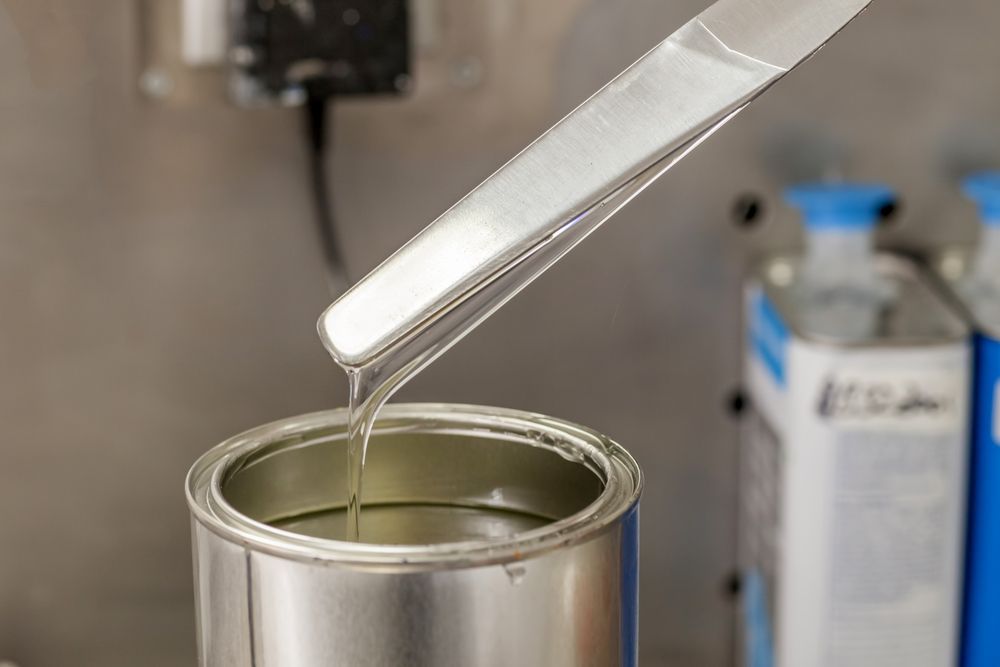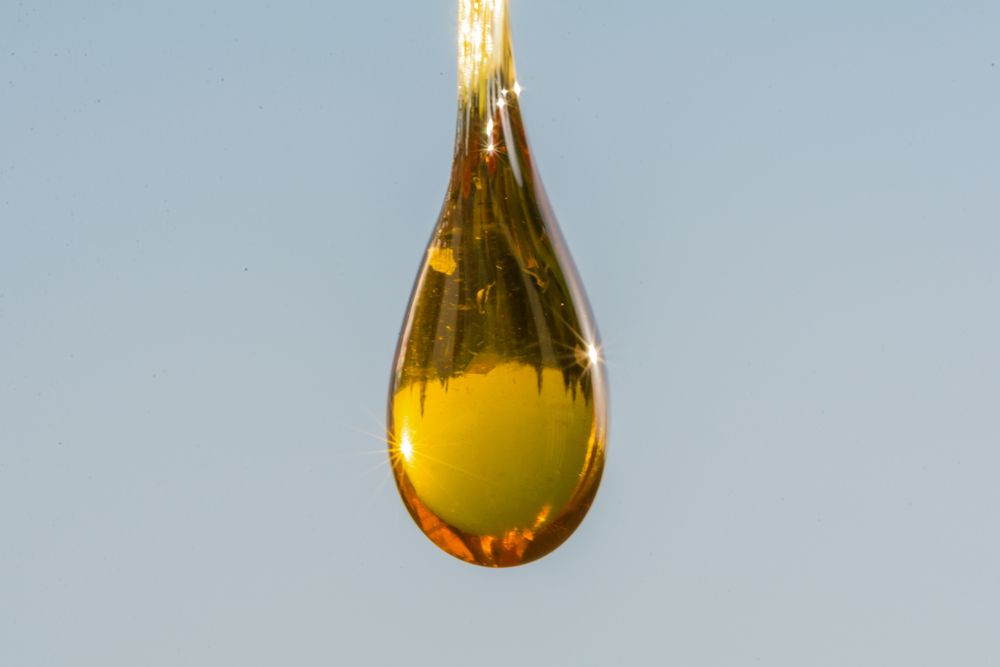Traditional vs Bio-Based Resin: Comparing the Alternatives
May 6, 2025
Written by: Vertec BioSolvents

Resins are essential building blocks in coatings, adhesives, composites, and encapsulation materials used across industrial manufacturing. For decades, petroleum-based resins have dominated the landscape, but that dominance is being challenged. Supply chain disruptions, rising environmental standards, and a growing push for renewable inputs are prompting manufacturers to rethink what’s in their resin systems.
Bio-based resins, made from renewable feedstocks like corn, soy, and plant oils, are proving they can match the performance of traditional resins (without the fossil fuel footprint). For manufacturers aiming to reduce their reliance on petrochemicals, today’s plant-based alternatives offer a reliable and forward-thinking path forward.
Both traditional and bio-based resins have their strengths, but bio-based options offer key advantages: lower environmental impact, easier regulatory compliance, and greater supply chain resilience.
What Are Traditional Petroleum-Based Resins?
Traditional petroleum-based resins are synthetic polymers derived from crude oil. Commonly used as binders, adhesives, or film-formers, they play a central role in products like paints, coatings, composites, and insulation materials. These resins are valued for their strength, durability, and ability to perform under extreme conditions.
Widely used types include epoxy, polyurethane, polyester, and vinyl resins. Each one offers distinct performance characteristics, such as chemical resistance, flexibility, or thermal stability, tailored to specific industrial applications. They are typically produced through chemical processes like polymerization or condensation, using petrochemical feedstocks such as ethylene, propylene, and benzene.
While these materials have a long track record of reliable performance, they also present significant drawbacks. Their dependence on fossil fuels, combined with the environmental and health risks associated with their production and use, is pushing many manufacturers to explore better alternatives.
Challenges of Traditional Resins: Environmental and Safety Concerns
The production and use of petroleum-based resins raise a range of environmental and safety concerns that can’t be overlooked. Manufacturing these resins requires fossil fuel inputs, which contribute to greenhouse gas emissions, air pollution, and depletion of non-renewable resources. Many of the chemicals involved are hazardous, demanding careful handling, specialized equipment, and strict regulatory compliance.
In use, some resin systems release volatile organic compounds (VOCs) that can compromise air quality and pose risks to workers. Disposal is equally challenging. These resins are not biodegradable and may persist in landfills or contaminate ecosystems if improperly discarded.
In industrial environments, exposure to reactive ingredients such as isocyanates or styrene introduces additional health risks. Managing these hazards adds complexity to operations and increases costs related to compliance, safety training, and protective protocols. These issues are fueling a growing demand for resin systems that deliver high performance with fewer environmental and health trade-offs.
What Is Bio-Based Resin?
Bio-based resin is a polymer system made from renewable raw materials such as corn, soy, castor oil, or other plant-derived feedstocks. These resins are designed to perform similarly to petroleum-based versions while lowering environmental impact. Rather than relying on fossil fuels, bio-based resins use naturally sourced inputs to create polymers that serve as binders, adhesives, or structural materials. They are increasingly used in industrial formulations where sustainability targets are driving material changes.
How Bio-Based Resins Are Made
Bio-based resins are created through similar chemical processes as traditional resins, including polymerization and curing. The key difference lies in the feedstock. Instead of petrochemicals, manufacturers use sugars, oils, or starches extracted from renewable crops. These inputs are refined into bio-based monomers or additives, then formulated into resins that match conventional performance standards.
Common Applications of Bio-Based Resins
Bio-based resins are used across industries where synthetic resins have been standard for decades. These include paints and coatings, adhesives, automotive parts, electronics encapsulation, and construction materials. In each of these settings, bio-based resin formulations offer comparable mechanical strength, thermal resistance, and curing behavior, making them suitable replacements in both new and existing product lines.
Comparing Traditional vs. Bio-Based Resins
Both traditional and bio-based resins offer unique advantages, but the decision to switch often comes down to how they stack up in key areas like performance, production, cost, and environmental outcomes. Understanding these differences helps manufacturers choose the right fit for their applications and sustainability goals.

Performance & Durability
Bio-based resins have closed the gap in performance, offering strength, flexibility, and thermal resistance that closely match petroleum-based options. In some cases, they even exceed them—especially in moisture resistance and chemical stability. The right bio-based formulation can handle demanding environments without compromising durability.
Manufacturing & Formulation
Traditional resins benefit from decades of established infrastructure, but bio-based resins are increasingly compatible with existing production processes. Manufacturers can often substitute bio-based materials into current workflows without major equipment changes. Custom blends also give formulators more control over curing speed, viscosity, and hardness.
Cost & Scalability
Bio-based resins can carry a slightly higher upfront cost, depending on the feedstock and volume. However, growing demand, improved sourcing, and greater supply chain stability are helping scale production and reduce price volatility compared to petrochemical resins.
Environmental Impact
Bio-based resins significantly reduce carbon footprint and reliance on fossil fuels. Their renewable feedstocks and lower emissions make them a more sustainable choice.
While the resin base is critical, the solvents used in formulation and processing also play a major role in shaping performance and sustainability. This is where bio-based solvents make a measurable difference.
How Bio-Based Solvents Improve Sustainable Resin Formulations
Bio-based solvents help improve the overall sustainability of resin formulations. They serve the same functions as traditional petroleum-based solvents, functions like thinning, dissolving, and cleaning, but they come from renewable sources like corn, soy, or citrus. This shift away from fossil inputs supports lower emissions, fewer hazardous air pollutants, and better compliance with evolving environmental standards.
In resin systems, bio-based solvents offer strong performance across epoxy, polyurethane, and acrylic chemistries. They maintain the
solvency power needed for effective formulation and processing while reducing exposure risks for workers and minimizing impact during disposal. Used during production or cleanup,
these solvents support safer, cleaner operations and make it easier for manufacturers to build high-performance resins using renewable components.
Future of Bio-Based Resins
Bio-based resins are gaining traction as manufacturers look for dependable, lower-impact materials that align with changing market demands. Advances in feedstock processing, polymer chemistry, and supply chain logistics are making it easier to match or exceed the performance of traditional resins.
As sourcing improves, costs continue to stabilize, making these resins more viable at scale. Regulatory shifts and customer expectations are also pushing product developers to explore cleaner material options. What once was seen as a specialty solution is becoming a mainstream alternative. The future points toward broader adoption across coatings, adhesives, composites, and beyond.
Choose Vertec BioSolvents for Bio-Based Resin Solutions
Switching to bio-based resins doesn’t have to mean compromising on performance, reworking production lines, or inflating your budget. With the right partners and materials, it becomes a straightforward upgrade… one that improves environmental outcomes and supports long-term supply stability.
Vertec BioSolvents supplies the bio-based solvents that help resin systems meet both performance and sustainability goals. Our formulations are engineered for compatibility, ease of use, and regulatory compliance, making them a reliable choice for manufacturers looking to reduce fossil fuel content in their resin products.
If you're developing or sourcing resin systems built for the future, Vertec is ready to help.
Contact us today to explore solvent solutions tailored to your formulation needs.


